Florida Sports Betting Compact Opponents Take Case to US Supreme Court
Posted on: October 12, 2023, 02:38h.
Last updated on: October 13, 2023, 12:38h.
Two Florida gambling companies are asking the U.S. Supreme Court to close the door on an effort to give the Seminole Tribe a monopoly on sports betting in the Sunshine State.
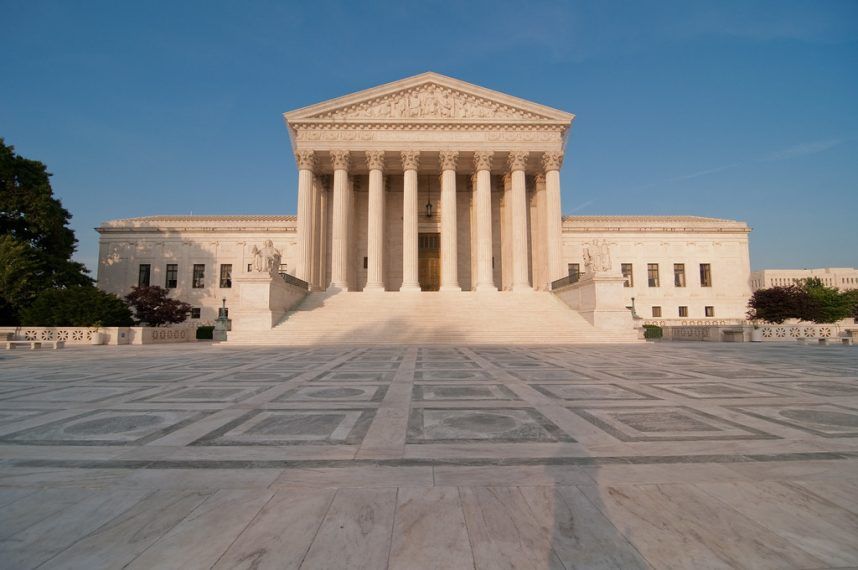
West Flagler Associates and the Bonia-Fort Myers Corporation have filed a motion asking the justices to prevent a lower court decision from taking effect until they can consider the underlying case. The motion is dated October 6 and was added to the Supreme Court docket this week. A full petition for certiorari will be filed by November 20, the companies said in their motion.
Operators of the Bonita Springs Poker Room in South Florida, the companies have spent the last two years fighting to overturn a gaming compact between the Seminole Tribe and the state. Gov. Ron DeSantis (R) signed the gaming compact in 2021, offering the tribe exclusive rights to operate sportsbooks in the state, including its Hard Rock Bet mobile platform.
The compact “deems” that any bets placed online actually happen on Seminole land, because that is where the Hard Rock servers are located. But West Flagler says that arrangement effectively opens the door to “off-reservation” gaming prohibited by federal law.
“Absent a stay, the Compact will give rise to hundreds of thousands, if not millions, of sports betting transactions that violate both state and federal law before this Court has the opportunity to address the merits,” West Flagler writes in its Supreme Court petition. “The Circuit Opinion enables a dramatic change in public policy on legalized gaming that, once started, may be difficult to stop. It is in the public interest to preserve the status quo with respect to online gaming until such time as this Court has a chance to review Applicants’ petition for a writ of certiorari.”
Bonita Springs offers pari-mutuel betting on horse racing and jai alai, along with table games such as ultimate Texas hold ‘em and three-card poker. It has “competed with the Tribe for gaming patrons since 2009,” meaning the parent companies will “be harmed by the Tribe’s operation of online sports betting throughout Florida.”
Key Arguments
Under federal law, the Department of Interior has oversight of tribal gaming under the Indian Gaming Regulatory Act. Tribes are able to operate Las Vegas-style casinos on tribal land as long as they enter into gaming compacts with the states where such facilities are located, as the Seminole Tribe has done for decades at its Hard Rock casinos around Florida.
Such compacts must be submitted to the Interior Department for approval, and they automatically take effect as long as the Interior Secretary doesn’t intervene within 45 days and they don’t violate the underlying requirements of IGRA. The Florida compact wasn’t subject to a formal decision and was deemed approved after the initial 45-day window.
The motion from West Flagler and Bonita-Fort Myers raises three key issues it says warrant a full review by the Supreme Court.
First, it asks whether the IGRA allows the Secretary of the Interior to allow compacts to be approved when they authorize a tribe to offer sports wagering throughout the state “and thus off Indian lands.”
The motion also argues the compact violates the Unlawful Internet Gambling Enforcement Act because Florida’s constitution prohibits sports betting except on tribal lands.
Finally, the companies ask whether the compact’s approval violates the equal protection clause of the Constitution. That’s by allowing the Seminole Tribe to offer sports betting statewide “while simultaneously making such conduct a felony if done by anyone of a different race, ancestry, ethnicity, or national origin.”
Parallel Proceeding
In addition to its federal court fight, West Flagler has also asked the Florida Supreme Court to step in and effectively invalidate the compact DeSantis signed two years ago.
DeSantis hasn’t yet filed a response in the state Supreme Court case, but one has been requested by November 21, according to the court docket.
Another Florida organization, “No Casinos, Inc.,” also has been granted an opportunity to intervene in the case on West Flagler’s behalf. No Casinos’ amicus brief is due by October 16.
Related News Articles
Supreme Court Blocks Florida Sports Betting Plan Pending Appeal
Anti-Gambling Group Adds Voice to Florida Sports Betting Case
Florida Sports Betting: Court Denies Redo, Clearing Way To Resume Wagers
Most Popular
Jackpot News Roundup: Two Major Holiday Wins at California’s Sky River Casino
Oakland A’s Prez Resigns, Raising Questions About Las Vegas Move
MGM Osaka to Begin Construction on Main Resort Structure in April 2025
Most Commented
-
UPDATE: Whiskey Pete’s Casino Near Las Vegas Closes
— December 20, 2024 — 33 Comments -
Zillow: Town Outside Las Vegas Named the Most Popular Retirement City in 2024
— December 26, 2024 — 31 Comments -
Oakland A’s Prez Resigns, Raising Questions About Las Vegas Move
— December 27, 2024 — 9 Comments -
Caesars Virginia in Danville Now Accepting Hotel Room Reservations
— November 27, 2024 — 9 Comments
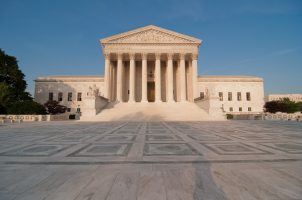
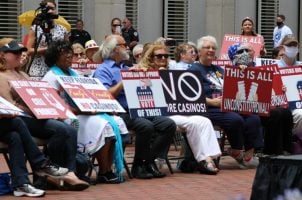
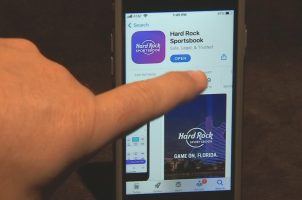
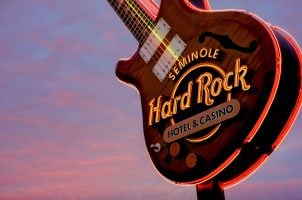










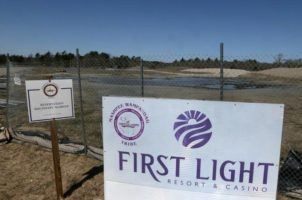
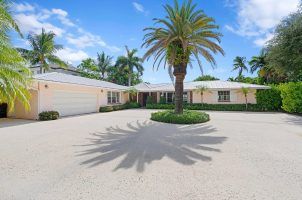
No comments yet